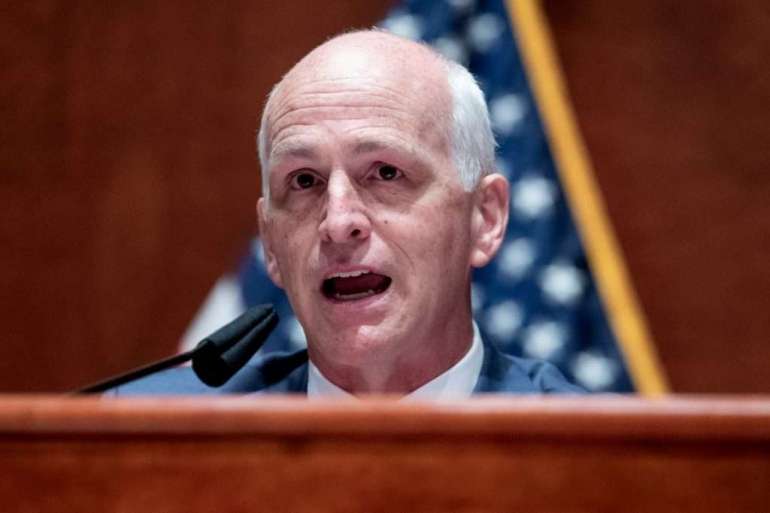House passes $768B defense bill, super-sizing Biden’s Pentagon plans

In a bipartisan blowout, 181 Democrats teamed with 135 Republicans to push the bill across the finish line.
The Senate has not yet passed its own version of the defense bill. The Senate Armed Services Committee approved a version in July that also endorses increased defense spending and expands the Selective Service registration to women.
In all, the legislation would authorize $768 billion for national defense programs, including $740 billion for the Pentagon base budget — an increase of $25 billion from what Biden requested — and $28 billion for nuclear weapons programs under the Energy Department.
On the House floor this week, Armed Services leaders touted the legislation as a key step in shedding aging weapons and helping the Pentagon pivot toward emerging technologies that help match threats posed by China and Russia.
“Everybody here will find something that they do not like,” House Armed Services Chair Adam Smith (D-Wash.) said on the House floor. “But it is also the nature of the legislative process, in this case, that we have produced a product that everybody in this House can be proud of.”
The top Armed Services Republican, Rep. Mike Rogers of Alabama, added that the bill is “laser-focused on preparing our military to prevail in a conflict with China.”
In a debate spanning three days, lawmakers tackled nearly 500 amendments to the defense bill.
Lawmakers notably rejected by a 286-142 vote efforts by progressive Democrats — led by Reps. Barbara Lee of California, Mark Pocan of Wisconsin and Alexandria Ocasio-Cortez of New York — to undo the $25 billion budget increase and instead endorse Biden’s budget level.
Republicans, and even some Democrats, have panned Biden’s budget as insufficient to tackle China and other emerging threats. And the Armed Services Committee this month adopted the extra spending in a wide bipartisan vote.
But increasing the defense budget has split House Democrats. Smith, who unsuccessfully opposed efforts to boost defense spending in the Armed Services Committee this month, backed the amendment along with 141 other Democrats, a majority of the caucus.
“We have got to instill discipline at the Pentagon so we get value for the dollars that we spend,” Smith said. “Simply giving them another $25 billion does not do that.”
The bill also would require women to register for a potential military draft, a major change that has irked conservative groups and lawmakers who were unsuccessful in their attempts to claw back the provision.
The Senate bill endorses a similar change to the Selective Service System. With the provision in both bills, the change has good odds of becoming law.
Though there hasn’t been a military draft in more than four decades, American men are still required to register when they turn 18. With all military combat jobs opening to women in 2015, support has grown for requiring all Americans to sign up.
The bill also taps into frustration among both parties with what lawmakers saw a shoddy withdrawal from Afghanistan that left Americans, Afghan allies and loads of equipment behind.
Lawmakers attached provisions requiring the Pentagon to explain to Congress why it left Bagram Air Base and why it halted maintenance support to the Afghan air force.
Other provisions require the administration to submit plans outlining how it will evacuate U.S. citizens and Afghan partners and conduct counterterrorism operations following the withdrawal. Lawmakers are also seeking information from the administration on the threat posed by terrorist groups such as Al Qaeda and ISIS-K following the Taliban takeover.
The bill also establishes a 12-member bipartisan commission, proposed by Rep. Liz Cheney (R-Wyo.), to review the entirety of the two-decade conflict.
The bill also would:
— Authorize $28.4 billion for 13 new Navy ships, including three Arleigh Burke-class destroyers and two Virginia-class attack submarines.
— Authorize the purchase of 85 Lockheed Martin F-35 fighters, matching the Pentagon’s budget request.
— Procure 24 Boeing F-15EX jets for the Air Force, double the number requested by the Pentagon.
— Prohibit private funding for cross-state National Guard deployment except for emergency or disaster relief efforts.
— Require generals and admirals to be out of the military for 10 years before they can serve as defense secretary, up from the current seven-year cooling off period.
— Provide a 2.7 percent troop pay raise.